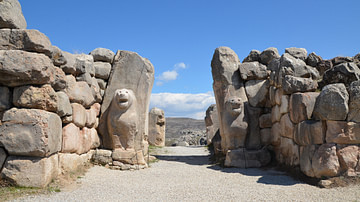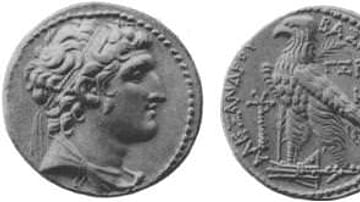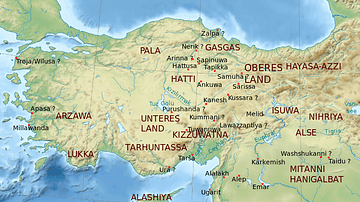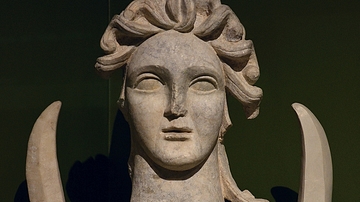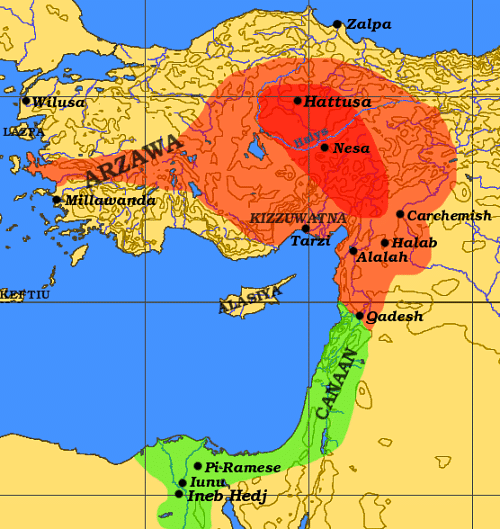
The Kaska or Kaskians were a tribe of the Pontus, northern Anatolia (today's Turkey), around the Kizil Irmak river mouth, bordering on and constantly harrasing the Hittite empire. That area is mostly mountainous in nature, and there the Kaska occupied simple settlements which presumably formed a loose confederation.
The first recorded appearance of the Kaska in history was during the reign of Hantili I (c. 1590 BCE - 1560 BCE), when they conquered territory including the holy city of Nerik. The city could not be put back under Hittite control until two centuries later.
The Kaska repeatedly penetrated Hittite lands, but never with a permanent occupation, except for the area around Nerik city, which was the gateway between Kaskan and Hittite territories. During Tudhaliya's reign, a major Kaska invasion -maybe concurrently with attacks from other Hittite enemies - led to the brief occupation of the Hittite's capital city, Hattusa, which was burned to the ground (c. 1380 BCE).
The Hittites in turn directed many punitive campaigns against the Kaska territory throughout their history, never being able to subjugate the area. Much of Mursili II's reign (c. 1321 BCE - 1295 BCE), one of the Hittite's greatest kings, was devoted to campaigns against the Kaska. Mursili stated that in his time there was a Kaskan leader called Pihhuniya who acted as king of the Kaska, something never seen before in Kaskan affairs. Occasionally the Hittites and the Kaska chiefs were able to settle treaties of peaceful coexistence, as was the case under Hittite king Arnuwanda I.
The Kaska joined other invaders from afar, the Sea Peoples and the Phrygians, in the final collapse of the Hittie empire c. 1200 BCE. After that, and since Hittite records are our main source about the Kaska, we lose track of them; they fade away as the general political and ethnic landscape in Anatolia changed. They are, however, referenced in the neighbouring Assyrian empire somewhat later, who's king Tiglath-Pileser (c. 1112 BCE - 1072 BCE) fought against Kaskan forces. The last reference to the Kaska comes from the time of the Assyrian king Sargon II around 700 BCE, who also fought them.


